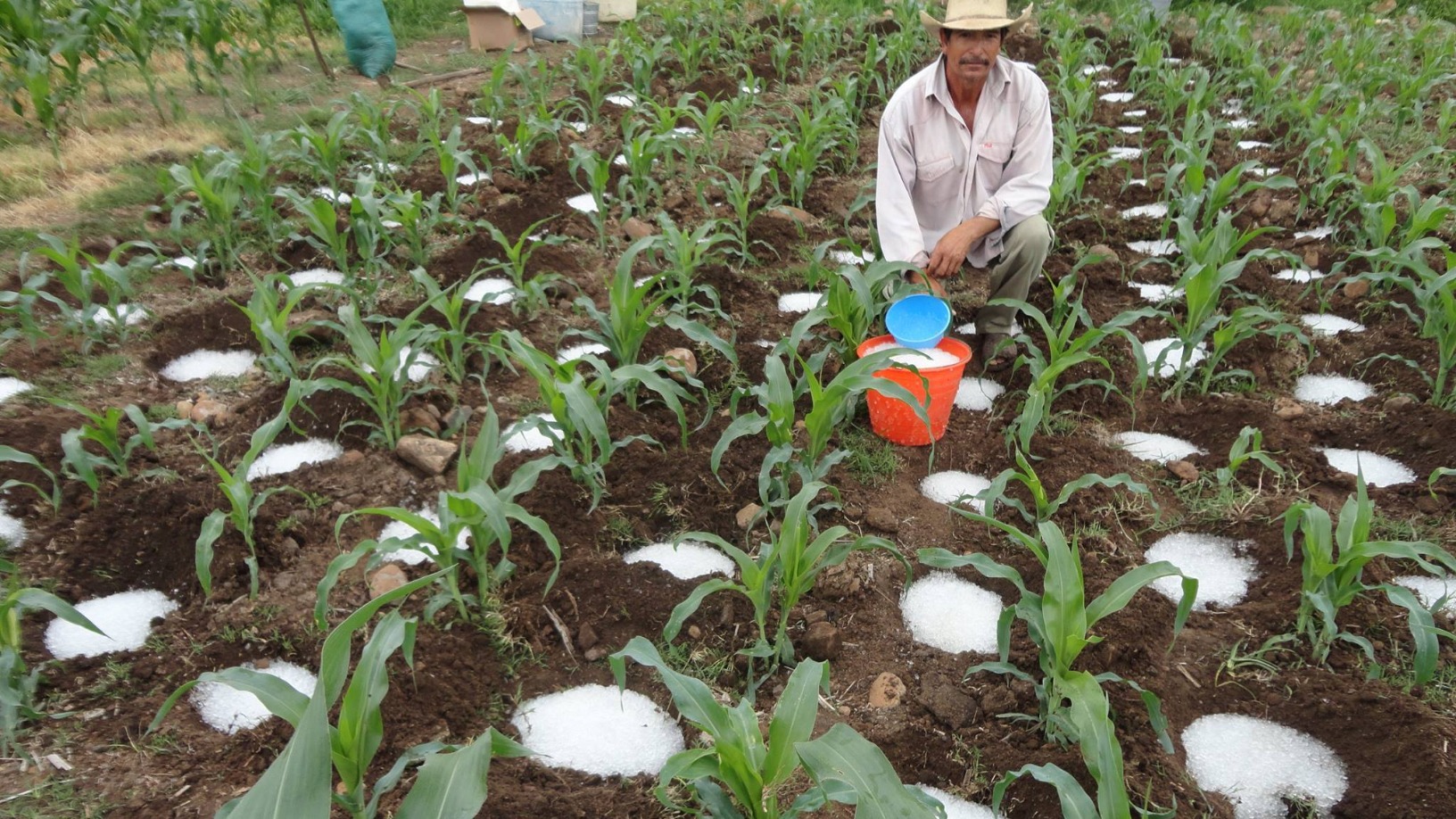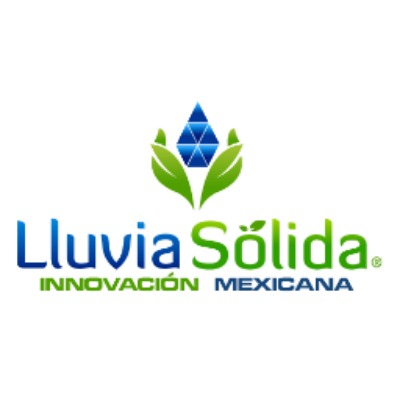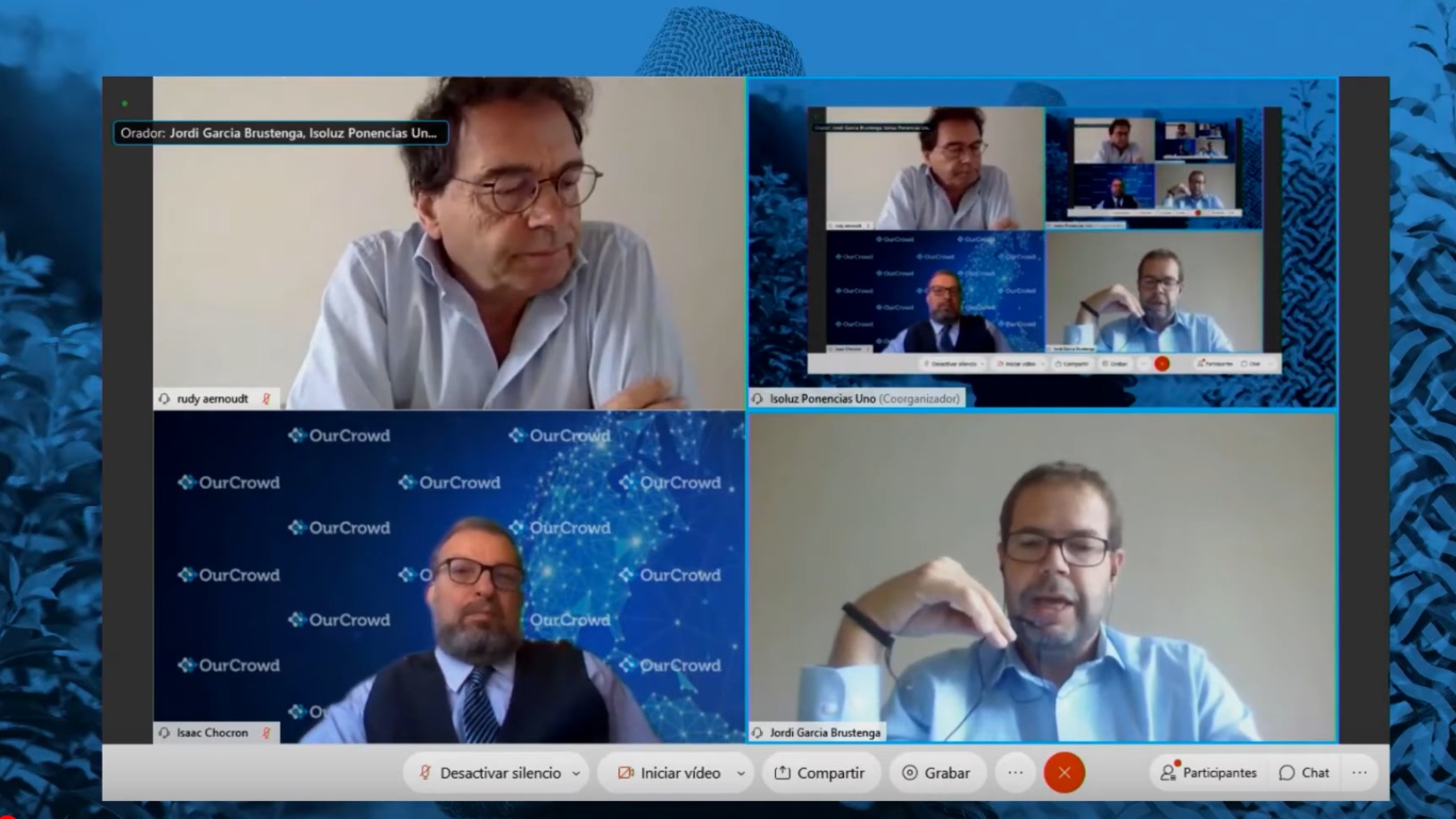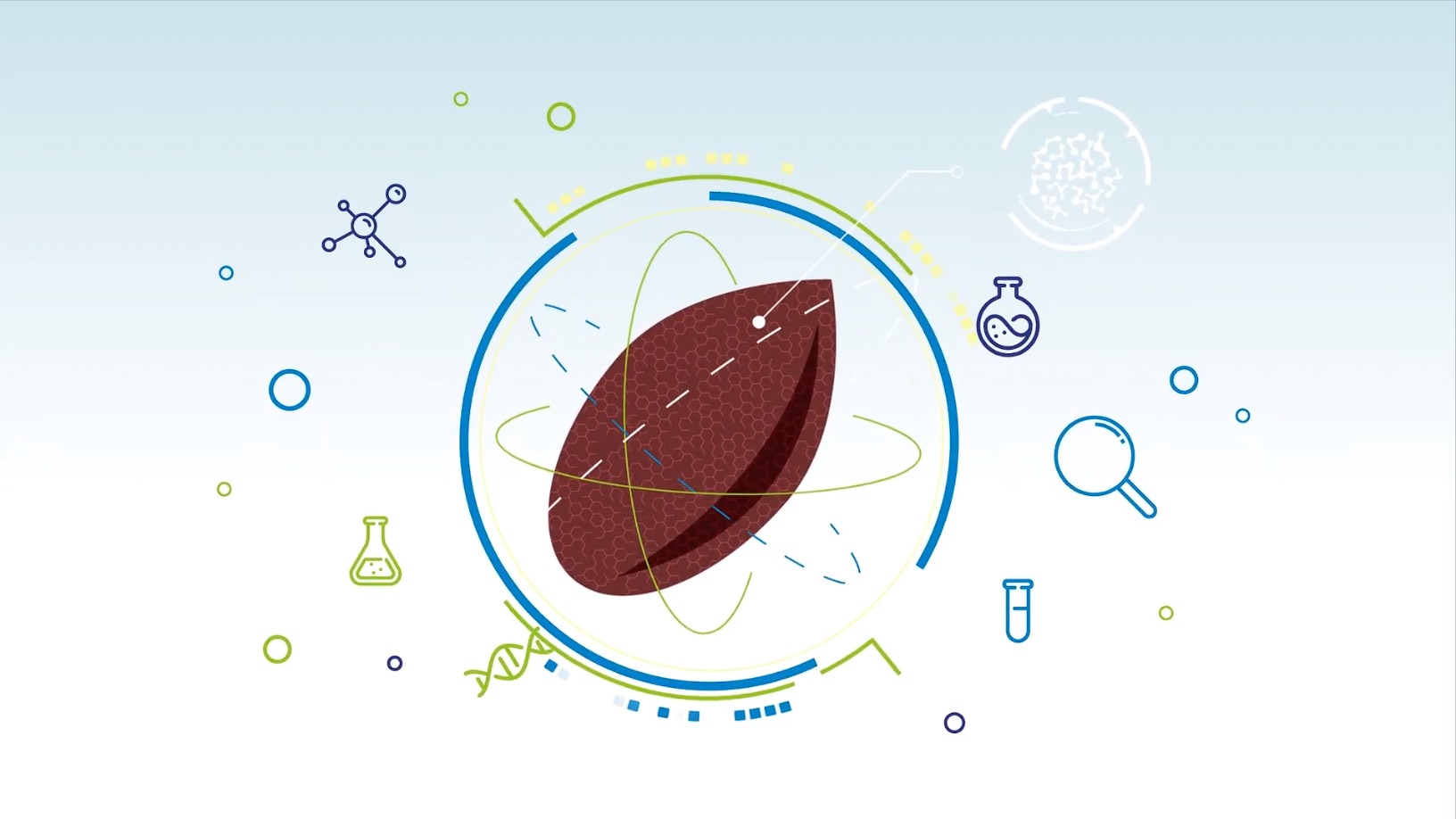Plants absorb only 10–15% of irrigation water while the remainder drains away or evaporates. This is a critical loss in drought-stricken regions, which Mexican startup Lluvia Sólida, or Solid Rain in English, aims to stem with its biodegradable, non-toxic, potassium-based polymer that has the capacity to hold water up to 400 times its weight for 40 days.
The technology was created by chemical engineer Sergio Rico Velasco in the late 1990s at Mexico's National University Polytechnic, where he tested potassium-based polymer's ability to retain water in plants and to capture and store toxic wastewater. The resulting product, also called Lluvia Sólida, won Mexico's national environmental prize in 2002 and the Rico family started promoting the technology from 2009.
Lluvia Sólida was founded in 2012 by Rico Velasco’s son, Leonardo Rico Fernández, a former school IT systems manager, but this company was dissolved following disagreements within the team. Leonardo Rico revived the company, currently based in central Mexican town of Santiago de Querétaro, with a different team in 2017 and is now its CEO and co-founder.
“I thought [polymers] could be used to save non-waste water, with the idea coming from necessity in agriculture,” Rico told CompassList recently in an online interview. “There is huge waste in agricultural watering and no culture of taking advantage of rainwater besides some expensive systems using drips and pressure.”
Once sown, Lluvia Sólida works for six to eight years in the ground. Alternatively, water can be stored for dry seasons by being absorbed by enough Lluvia Sólida, which can be stored for future use without evaporation.
A major part of Lluvia Sólida's work is also sustainability-focused, social impact projects, especially in extremely poor regions. The company is currently participating in over 50 social impact projects. Recently, it donated its product to reforest 4,000 trees in Mexico City. Last year. the startup was selected as a finalist in the Chivas Venture, which awards a $1m prize to the winning “world-changing” startup.
Water becomes solid
Besides its potassium base and carbon derivative properties, the exact composition of Lluvia Sólida is a closely guarded secret . “Its derived from petrol but it is not dangerous," said Rico. “Potassium occurs naturally and has the capacity to be functional for years, as it is non-soluble and doesn't degrade or modify the qualities of the plant, the earth or water.”
When the product comes into contact with water, the carbon atoms, bonded by ions, are liberated and transform the liquid water into granules while maintaining moisture, producing Solid Rain. One kilogram of the product solidifies 400 liters of water. Lluvia Sólida is completely biodegradable, non-toxic to any plant and is Ph neutral, though it does contain some non-organic components.
“Lluvia Solida can be used with any kind of plants or cultivation, from vegetables to garden flowers and park lawns," said Rico. "Instead of watering several times a week or daily, you only need to water once or twice a month, saving time, money and, of course, water.”
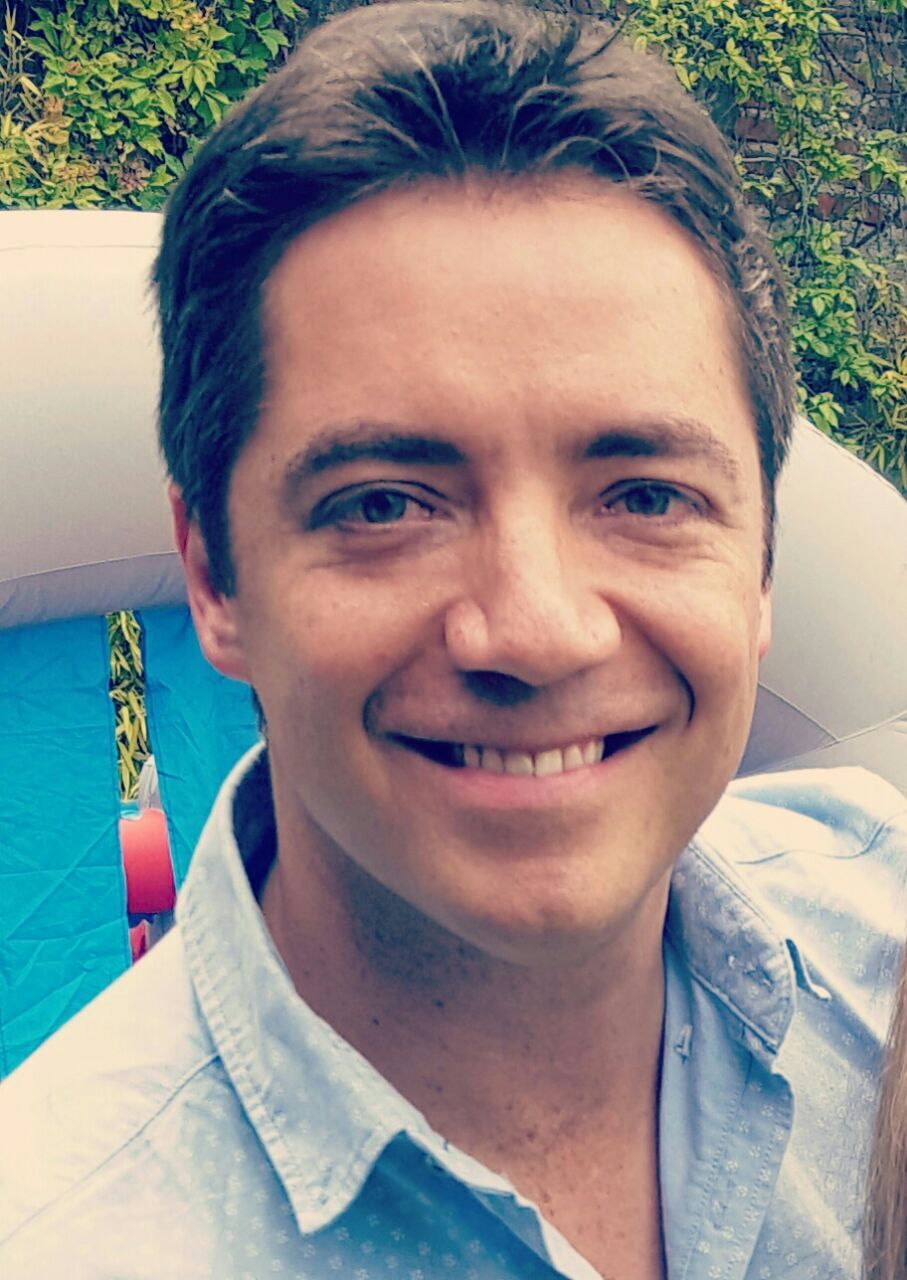
Due to its ability to retain water for up to 40 days, the product is ideal for cultivating large terrains that don't have a constant water supply or for regions experiencing dry seasons. The product absorbs rain during the wet season for later release, reducing the need for watering by up to 90%. The product itself is easy to use once dosages are ascertained.
“The only thing you have to be sure of is that the product is always at the roots. That's where plants need to be hydrated. It can be applied by hand at the time of sowing or by using a tractor,” said Rico. “That is the optimal time, though the product can be used at all stages of growth. If it is applied after sowing, then you need to make a ditch at the level of the root nearby and the roots will look for the moisture,” he added.
Forests and fires
A novel use of Lluvia Sólida, which is also its most recent application, is as a tool to fight forest fires. The polymer can be dropped into the path of forest fires to abruptly stop the advance. “When it is dropped from drones, it is a completely effective and safe fire stopper, eliminating the need to risk the lives of pilots or firefighters,” said Rico.
Last year, the EU-supported Finnova Foundation, awarded Lluvia Sólida and Drone Hopper the Firefighting-Climate Change prize at the COP25 Startup Europe Awards. It was also nominated for the 2019 Green Latin America Prizes. Lluvia Sólida is due to participate in the CILIFO project a joint Spanish-Portuguese firefightinginitiative that willtrial Lluvia Sólida dropped from drones.
“In the case of reforestation, we increase the rate of survival of new trees significantly," said Rico. “One recent customer reported that 80% of the trees planted survived using our product. Without it, the survival rate would have been 20-30% maximum.”
In the poor region of Topilejo, where indigenous people could not previously cultivate their culturally important maralfalfa plant, they are now able to do so using Lluvia Sólida. The product, said Rico, helps “to avoid abandonment of [traditional] land, resolving problems of hunger, poverty and emigration [to cities].”
Customers from afar
Lluvia Sólida, which participated in the Smart Agrifood Summit in Málaga, Spain, in September this year, also monetizes by providing personalized services to assess the required dosage. "The amount applied depends on the type of cultivation, the seed density, the climate and the type of soil, among other factors,” said Rico. The company also relies on a network of distributors in Mexico and, increasingly overseas, with agronomists on the team.
The startup currently sells its product in China, Chile, Peru, Ecuador, the Ivory Coast and as far away as French Polynesia. “I was very surprised when they came all the way from Tahiti after finding us on the Internet," said Rico. “They said although they are on a tropical island, they have water supply problems for their cultivation.”
The company outsources production to a factory close to its base in the central region of Querétaro and can produce up to 80 tons per month, which it is now increasing to 120 tons. Lluvia Sólida is sold in quantities from 150g jars to ton loads. To date, it has sold to more than 3,800 customers, with 60 coming from outside of Mexico.
“We began by focusing on extensive rural plantations but we also saw that in city gardens and parks there is a great market for small quantities of the product," said Rico. “We have been presenting to the market, especially in Mexico City, and often attend expos and conferences on sustainability and floriculture in Mexico.”
The company does not advertise extensively and its growth, including overseas, has come from its content on online channels, such as YouTube.
US investor interest
Though there are competitors producing potassium-based polymer for water retention, Rico has the original brand and patent and sees them as no competition. He maintains that there is no-one else using his method.
There are also cheaper sodium-based alternatives but Rico is unperturbed. “It is our direct competition and is very cheap, but it is harmful, toxic, has limited water retention properties and converts into salt. Instead of bringing moisture to the plant, it eventually removes it,” said Rico.
The company also consists of CMO and co-founder Karina Mendoza Hemmer and three part-timers working in sales, accounting and agronomy, respectively. Mendoza also lectures in marketing at the Central University of Querétaro and previously headed up the marketing department at International House. She is also a qualified ontology coach.
While Lluvia Sólida has required no outside funding, the startup would not exist today had Rico not sold his house to bootstrap the business. A group of US investors is considering buying over the company. Rico said that even if the deal goes ahead, he will retain a part of the equity as he has “too much passion to abandon" a product that could potentially have significant global impact.
